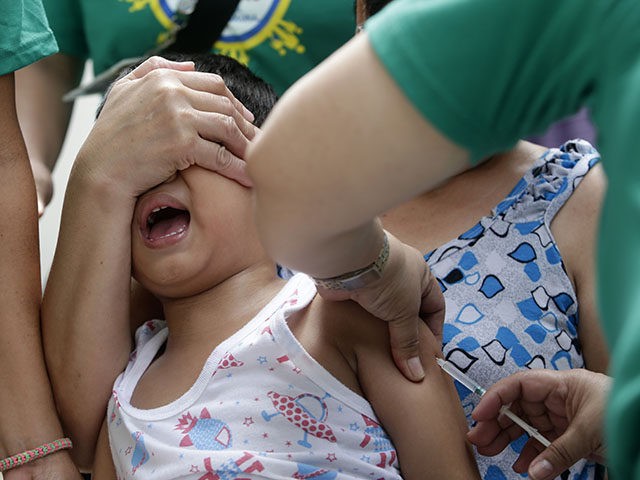The World Health Organization (W.H.O.) said Tuesday there is currently “no evidence” demonstrating a need for healthy children or adolescents to receive booster doses of Chinese coronavirus vaccines.
“There’s no evidence right now that healthy children or healthy adolescents need boosters. No evidence at all,” (W.H.O.) Chief Scientist Dr. Soumya Swaminathan said at a regular W.H.O. press briefing on January 18.
The governments of the U.S., Israel, Germany, and Hungary recently began offering “boosters” of Chinese coronavirus vaccines to children and adolescents. A “booster” is an additional dose of a vaccine that a person receives after he or she has already completed the full series of an inoculation.
“Israel has begun offering boosters to children as young as 12, and the U.S. States Food and Drug Administration earlier this month authorized the use of a third dose of the Pfizer and BioNTech COVID-19 vaccine for children aged 12 to 15,” Reuters reported on January 19.
“Last week Germany became the latest country to recommend that all children between ages of 12 and 17 receive a COVID-19 booster shot. Hungary has also done so,” according to the news agency.
Scientists and health experts worldwide continue to stress that children are among the lowest risk group for contracting a severe illness or dying due to an infection of the Chinese coronavirus, which is formally labeled “COVID-19.” A type of coronavirus called SARS-CoV-2 causes the disease known as “COVID-19.”
Children in the U.S. between the ages of 0 and 11 account for less than 0.1 percent of total deaths caused by the Chinese coronavirus since the W.H.O. declared a pandemic of the disease in March 2020, according to the latest figures by the U.S. Centers for Disease Control and Prevention (CDC). Children and adolescents between the ages of 12 and 17 also account for less than 0.1 percent of total deaths caused by the disease in the U.S. since March 2020. Children and adolescents between the ages of 0 and 17 constitute 22.3 percent of the U.S. population, which is estimated at 332.4 million.
W.H.O. Chief Scientist Dr. Soumya Swaminathan on January 18 said evidence gathered to date by the W.H.O.’s “Technical Advisory Group on COVID-19 Vaccine Composition (TAG-CO-VAC)” shows that such vaccines currently available worldwide are primarily helping to reduce the prevalence of severe illness and death in Chinese coronavirus patients, while their efficacy in preventing transmission of the disease is “waning” against emerging variants of the disease capable of high rates of “immune escape,” such as omicron.
“The TAG-CO-VAC was set up … to pull together the threads of data and evidence that are coming from all of the other different working groups that W.H.O. has set up … and bits of evidence from all over the world. Essentially to determine … whether the vaccines need any change or not,” she said.
“The current vaccines are protecting people against getting severely ill and getting hospitalized and dying,” Swaminathan stated.
A Portuguese reporter asked the W.H.O. at the January 18 media briefing, “Will boosters give global immunity, lasting immunity to the virus?”
Producers of the Pfizer vaccine, BioNTech, are preparing to request clearance to vaccinate children five years old and older. https://t.co/A96g6iOLah
— Breitbart News (@BreitbartNews) September 13, 2021
“This question of the boosters is also something we’ve been looking at very closely,” Swaminathan replied.
“Different variants have had different levels of immune escape. And with omicron, we know that it has the highest levels of immune escape or immune evasion that we’ve seen across all of the variants so far,” the W.H.O. chief scientist said.
“Across all of the vaccines, [W.H.O. has seen] high levels of protection against severe disease. That’s the outcome we’re most interested in: protection against death,” Swaminathan affirmed.
“Against omicron, many of the vaccines have shown a reduction in efficacy against infection. And that’s why we see a lot of breakthrough infections,” she acknowledged.
“There is some waning which occurs over a period of time. And we’ve seen that there’s a slight drop in the protection. Again, mostly against infection, but also a little bit against the severe disease,” Swaminathan revealed.

COMMENTS
Please let us know if you're having issues with commenting.